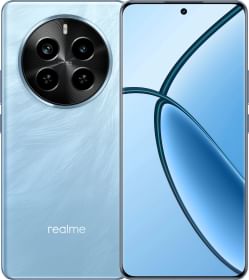In a strategic move poised to attract major players in the global electric vehicle (EV) sector, the Indian government has unveiled a groundbreaking initiative to significantly reduce import duties on EVs. This bold step, introduced as part of a new e-vehicle policy, will see a drastic cut in import tariffs from a hefty 100 percent to a mere 15 percent. The policy targets imported electric vehicles valued at USD 35,000 (approximately Rs 29 lakh) and above, with manufacturers mandated to commit to substantial investments exceeding USD 500 million (about Rs 4,150 crore) for local manufacturing within a three-year timeframe.
New EV Import Policy
Under the new policy directives, electric vehicle (EV) manufacturers are obligated to establish production facilities within a stringent three-year window, kickstarting commercial production of electric vehicles within the nation’s borders. Furthermore, these manufacturers are tasked with achieving a domestic value addition (DVA) threshold of 25 percent by the conclusion of the third year, with a subsequent increase to a minimum of 50 percent within a five-year span.
During this specified timeframe, the government has sanctioned the import of up to 40,000 electric vehicles (EVs) at the reduced import duty, translating to approximately 8,000 EVs annually. Notably, unutilized annual import quotas can be carried over, contingent upon the manufacturer’s total investment surpassing USD 800 million (approximately Rs 6,629 crore).
Moreover, the total duty exemption for imported EVs will be capped at the manufacturer’s investment or Rs 6,484 crore (equivalent to incentives under the PLI scheme), whichever is lower. Companies falling short of the stipulated domestic value addition (DVA) and investment benchmarks risk the enforcement of bank guarantees as per the policy mandates.
The implementation of this policy marks a significant milestone, potentially clearing the path for Tesla’s long-awaited entry into the Indian market. Tesla, a prominent player in the electric vehicle (EV) industry, has fervently advocated for a reduction in import duties on EVs as a prerequisite for formalizing its plans for India. Notably, Tesla’s entire lineup, comprising the Model 3, Model S, Model X, Model Y, and the Cybertruck, exceeds the USD 30,000 threshold. Reports suggest that Tesla is actively developing a more affordable EV, known as ‘Project Redwood,’ which holds the promise of potential local production in India, further bolstering the company’s prospects in the burgeoning Indian EV landscape.
Furthermore, the unveiling of this policy is poised to extend its benefits to Vietnam’s Vinfast Auto, a rising contender in the electric vehicle (EV) domain. Vinfast recently solidified its commitment to the Indian market by signing a Memorandum of Understanding (MoU) with the Tamil Nadu government. Additionally, the company has initiated construction on its future EV manufacturing plant located in Thoothukudi. This state-of-the-art facility is slated to boast an impressive annual production capacity of 150,000 units, positioning Vinfast as a formidable player in India’s rapidly evolving EV landscape.
You can follow Smartprix on Twitter, Facebook, Instagram, and Google News. Visit smartprix.com for the most recent news, reviews, and tech guides.





























